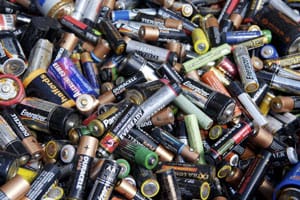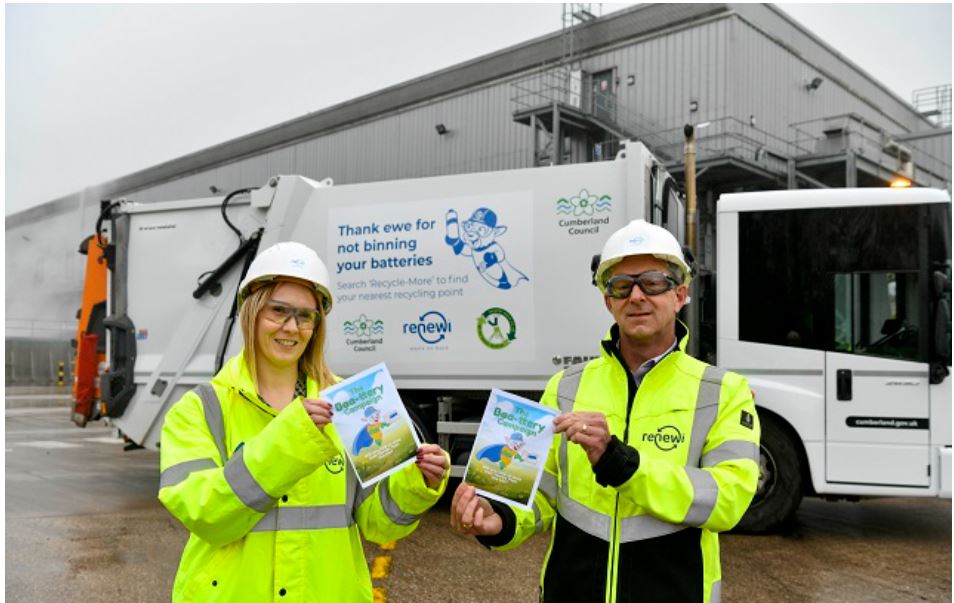Data published by the Environment Agency last week shows that the UK is close to meeting its recycling target for waste portable batteries.
However, industry sources have said that the collection figures show the continuing disparity between the amount of lead acid batteries being placed onto the market and those being used to meet the target, and have called for immediate government action on the issue.

The provisional data for the fourth quarter of 2013 published on Friday (February 28) by the Environment Agency shows that in total 12,143 tonnes of waste batteries were collected, over an obligation of 10,961 tonnes.
The EUs Batteries Directive requires Member States to collect 30% of the average number of portable batteries placed onto the market over the three years preceding 2013, up from 25% in 2012.
So far evidence notes have been issued for a total of 10,557 tonnes of those collected to date, meaning that the collection rate currently stands at 28.89%, but there is still time for this to rise as schemes have until May 31 to submit evidence to meet their members obligations for 2013.
The recycling rate for waste portable batteries has continued to grow from the levels recorded in 2012, when an overall collection rate of 28.34% was achieved, up still from the 18.03% recycling rate recorded in 2011 (see letsrecycle.com story)
Lead acid
But, the data does show that the number of portable lead acid batteries being collected is still proportionately high compared to the amount being placed onto the market. In total, 10,485 tonnes of lead acid batteries were collected for recycling throughout 2013 86% of those collected compared to just 2,193 tonnes placed onto the market.

Collections of nickel cadmium (NiCd) and other batteries did see a slight increase in the final quarter of 2013, with 70 tonnes of NiCd batteries collected between October and December, more than double that recorded in the previous quarter. Around 403 tonnes of other batteries were collected in Q4, an increase of over 100 tonnes on the previous quarter.
NiCd and other batteries make up the vast proportion of those placed onto the market, but currently much of the UKs battery recycling obligation is being met by the disproportionately high lead acid battery collection rate.
‘If you consider from the point of view of what the regulations are supposed to be achieving with the collection target going up by 5%, the amount of lead acid batteries has increased by 1500 tonnes, whereas the amount of NiCd and other batteries actually fell but we still managed to meet the target.’
Michael Green, G&P Batteries
Growth
As a result, industry sources have expressed concern that the UK will be unprepared to meet future battery recycling targets as collections of NiCd and other batteries have shown little growth in recent years, while lead acid battery collections have continued to rise.
Recyclers are currently waiting for the government to alter the definition of portable waste batteries, in a move that would reduce the number of lead acid batteries that are obligated to be counted towards the recycling target.
However, it is not clear when this will happen after an original consultation on changing the legislation was scrapped after an error in the consultation documents was discovered.
Speaking to letsrecycle.com, Michael Green, managing director at Midlands-based battery recycling firm G&P Batteries, said that the figures should still represent a concern for the sector.
He said: The headline is that the UK is achieving its target, but when you look behind that it tells a fairly negative story. Broadly, we have a lead acid collection rate of around 470% and a nickel-cadmium collection rate of around 17% and 4% for other battery classifications.
If you consider from the point of view of what the regulations are supposed to be achieving with the collection target going up by 5%, the amount of lead acid batteries has increased by 1500 tonnes, whereas the amount of NiCd and other batteries actually fell but we still managed to meet the target.
Budget Pack
Meanwhile, Robbie Staniforth, relationship team manager at battery compliance scheme Budget Pack commented that he is ‘confident’ that the 30% target will be met once final returns are submitted by schemes.
He said: “We’re pleased that early indications show the UK will meet the battery recycling targets for 2013. We work with many household names and take their obligations very seriously, having already met our members’ recycling obligations for 2013. It appears that there are still some evidence notes that need to be accepted in order for the UK to meet the target. However, we are confident that when the final figures are released around the middle of the year, they will show the UK met the self-imposed target of 30% in 2013.
Related Links
“The figures also show an increase in the amount of portable batteries placed onto the market in 2013, when compared with 2012. We are encouraged to see that the trend of declining batteries sales since the regulations began in 2009, has been reversed.
“We look forward to future changes in the battery recycling market, once Defra has released their consultation, due later this year.”









[…] UK close to meeting 2013 battery recycling target – Data published by the Environment Agency last week shows that the … However, industry sources have said that the collection figures show the continuing disparity between the amount of lead acid batteries being placed onto the market and those being … […]